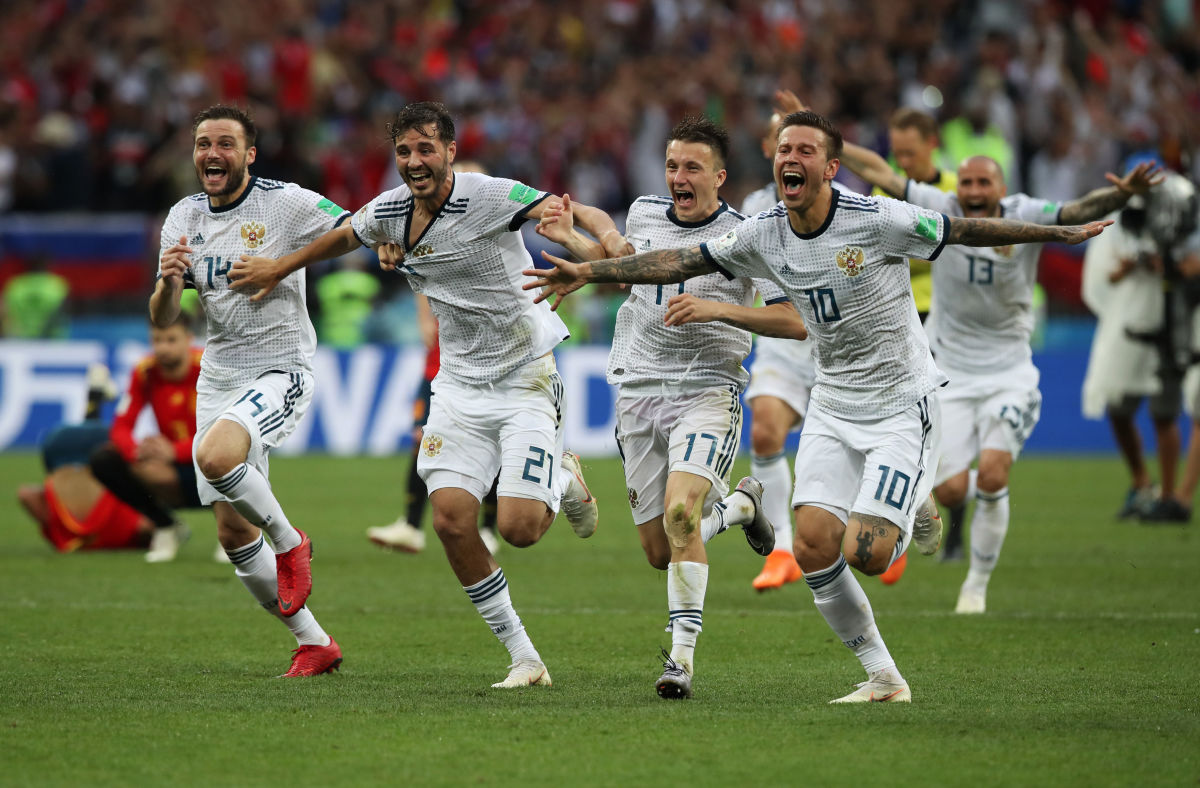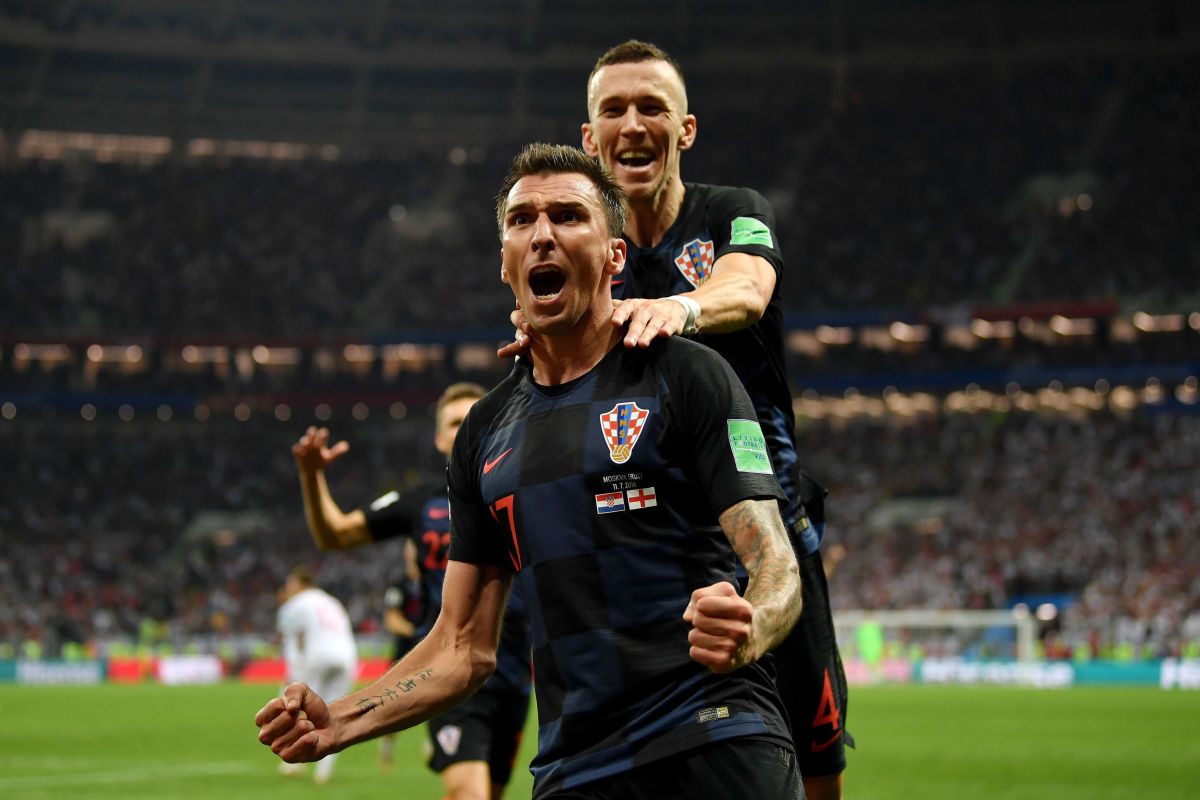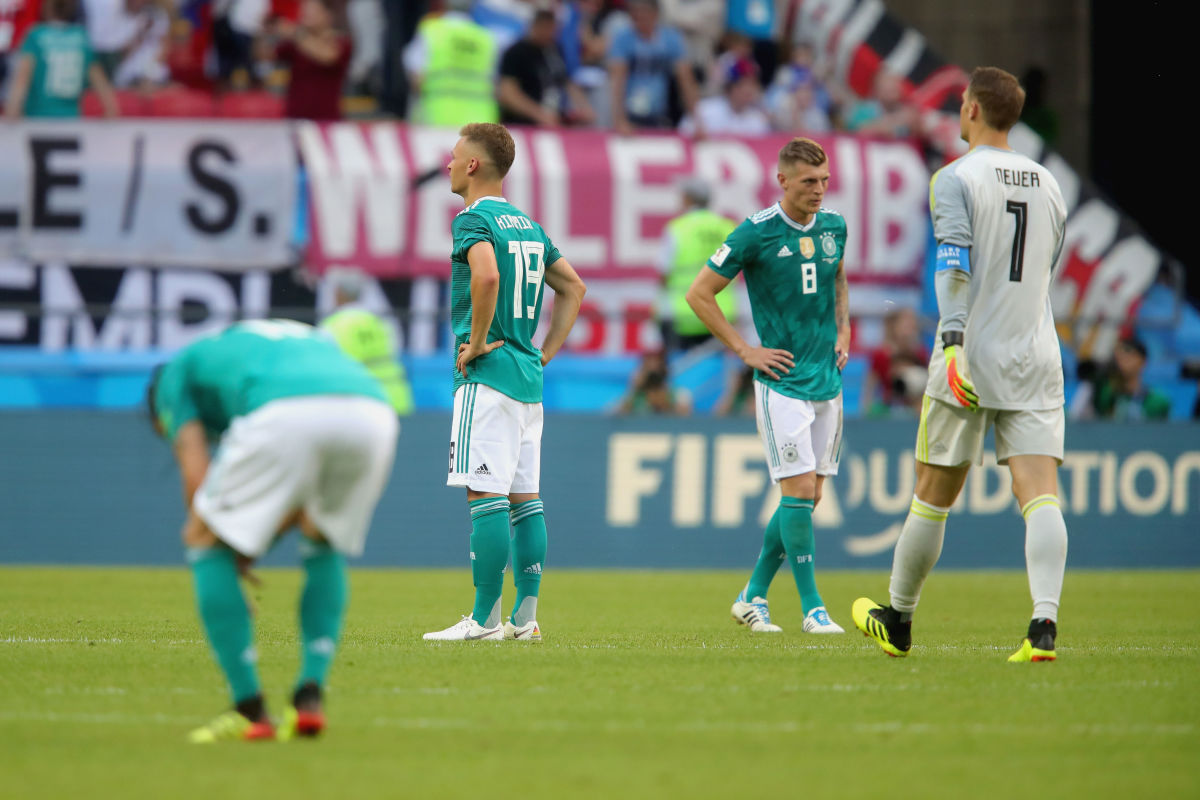The Miracle Tournament: Why No Amount of FIFA Meddling Will Ever Kill the World Cup

After years of worrying, it was alright on the night. It always is. Just as riots did not materialise in Brazil in 2014, hooliganism hardly reared its ugly head in Russia. This will go down, both on and off the pitch, as one of the most successful World Cups of all time.
As it became apparent that Russia were staging a well-organised tournament, questions about the process by which it was awarded to them faded away. The outrage that we felt when Russia beat England in the voting process eight years ago has become admiration at how welcoming and inclusive the host nation has been.
Any fears that the atmosphere at this tournament would be sterilised were quickly allayed. The South Americans in particular arrived in their droves, bringing colour and noise with them wherever they went. The undoubted highlight was Peru's fervent following, making unimaginable sacrifices to be in Russia and maintaining their high spirits even after the Incas' early exit.

From England, where the anti-Russia feeling is stronger than in other countries, there were fewer supporters than usual. Yet as travelling fans posted positive reports of the host nation, and as England went further than anyone could have envisaged, more and more fans started to trickle across to the eastern front.
The Russians, for their part, laid down the welcome mat and completely bought into the tournament. Any scepticism about their own team's ability was quickly blown away by the magic of the World Cup, and by their performance on opening day, when their much-maligned team demolished Saudi Arabia.
However suspect the decision was to award the 2018 World Cup to Russia, they were always going to host a good tournament. This is the biggest country in the world, and one which cares about presenting a positive image of itself on the back pages at a time when the front ones are rarely kind.

FIFA's remit of "taking the World Cup to new places" may be a convenient lie, but it's embedded within a truth. The World Cup does unite people, inspire nations, and change perceptions. The excitement of Russia's football and the passion of its people has helped to shake off its image as a cold, clinical behemoth of a country.
The World Cup allows us to forget the political wranglings of the modern day. Chances are you found yourself rooting for Iran and Russia at some point during this tournament, regardless of what you think of those two nations. Penalties, not Putin, will be the abiding memory of Russia in the summer of 2018.
So FIFA finds itself breathing a huge sigh of relief. Their first gamble - the smaller of the two - has paid off. But they know that the real test will come in four-and-a-half years' time, when the World Cup is hosted by a nation with sweltering temperatures, no footballing heritage, and an appalling human rights record.
HH @TamimBinHamad officially receives the hosting of #QATAR_2022 FIFA World Cup for the first time in the Arab region and the Middle East 🇶🇦 A historic and remarkable moment! #كاس_العالم2022 #الوعد2022#seeyouin2022 pic.twitter.com/XJbYFWQlkc
— محمد بن عبدالرحمن (@MBA_AlThani_) July 15, 2018
On that score, FIFA has already lost the next battle. People have died building the infrastructure for Qatar 2022, a tragedy which football's governing body are determined to sweep under the carpet. There have been talks of boycotts, but it would require a huge collective effort to make it worthwhile and nobody wants to miss out on the World Cup.
A winter World Cup holds little appeal either, for the tournament is as synonymous with summer as sun and barbecues. Forget about beer garden parties, we'll be singing "It's Coming Home" while wrapped up in blankets on the couch. England-themed Christmas decorations will do a roaring trade at least.
Gianni Infantino has refused to comment on whether the tournament will have 32 or 48 teams, meaning that it'll probably be the latter. More money, innit? Regardless, we know that from 2026 onwards it will be expanded to an unmanageable size. Four worse Asian teams than Saudi Arabia? Three worse North American teams than Panama? I can hardly wait.

It is ironic that the association responsible for the organisation of the World Cup appears to be locked in a constant battle with it. FIFA has long since stopped pretending to care about the quality of football played at their most prestigious tournament, so preoccupied are they with financial gain.
Even this summer, FIFA set about making small changes that could have ruined the World Cup. The introduction of seeding throughout all pots, for examples, eliminated the possibility of a group of death, meaning that more big teams could progress to the knockout stages. We have to get those money-makers in the last 16, am I right?
But this backfired spectacularly, because the World Cup objects to being dull. It refuses to be contained by the restrictions placed upon it. You want to keep the big teams apart? Joke's on you. Reputations mean nothing to the World Cup, as Germany, Argentina and the absent Italians can attest. None of the 2014 semi-finalists reached that stage this time.

The decision to award the World Cup to Qatar was fraught with questions about the location and the climate. But you can stage the World Cup on the dark side of the moon and football fans will still find a way to make it feel like home.
Qatar as hosts won't kill the World Cup. The winter schedule won't kill the World Cup. The expansion to 48 teams won't kill the World Cup. The World Cup is different from other tournaments, for it exists as much in the collective imagination of the world as it does on the pitch. As long as it continues to capture that imagination, it lives.
Just give us 22 players, a football, a pitch to play on, and a throng of passionate supporters. The World Cup will find a way. See you in four years.
